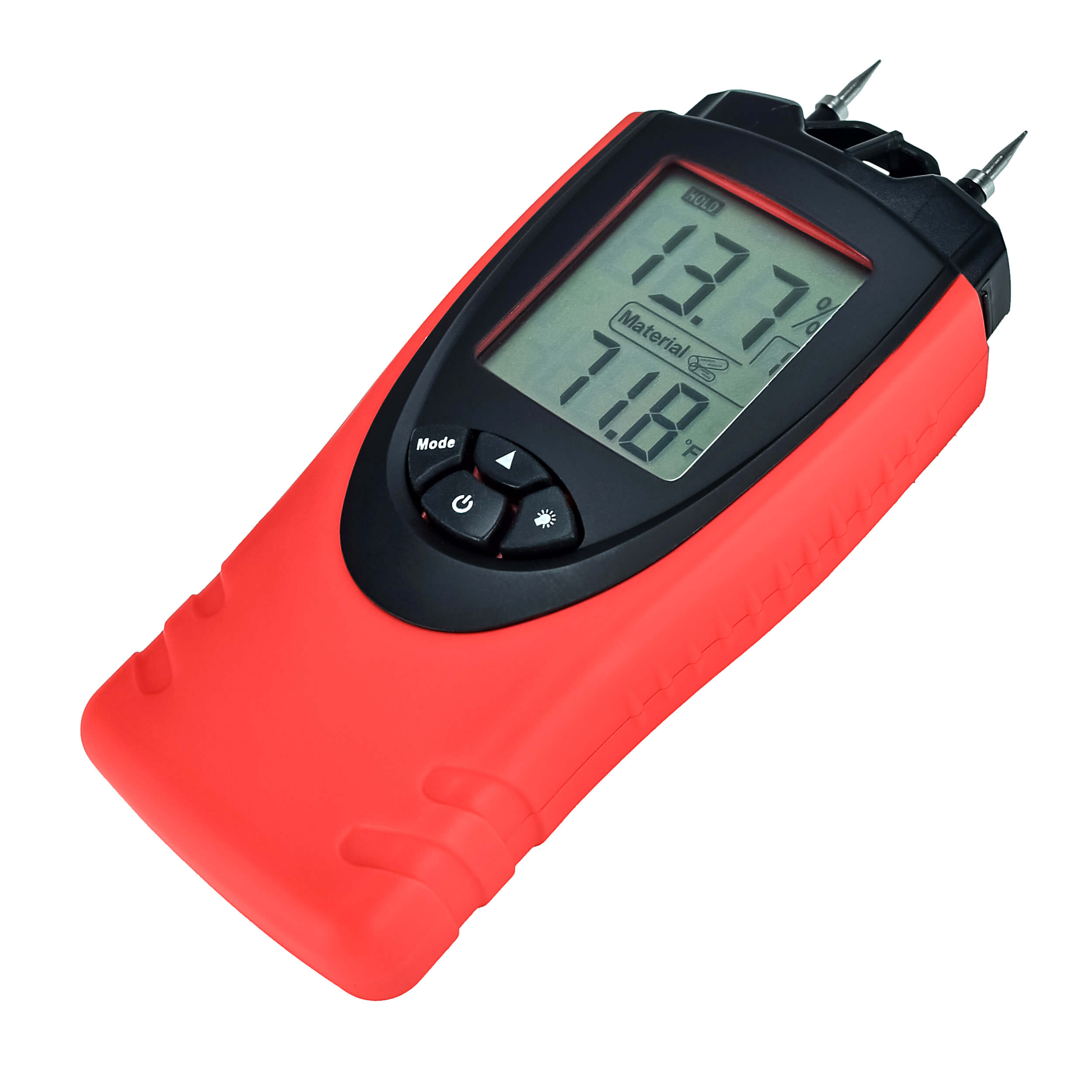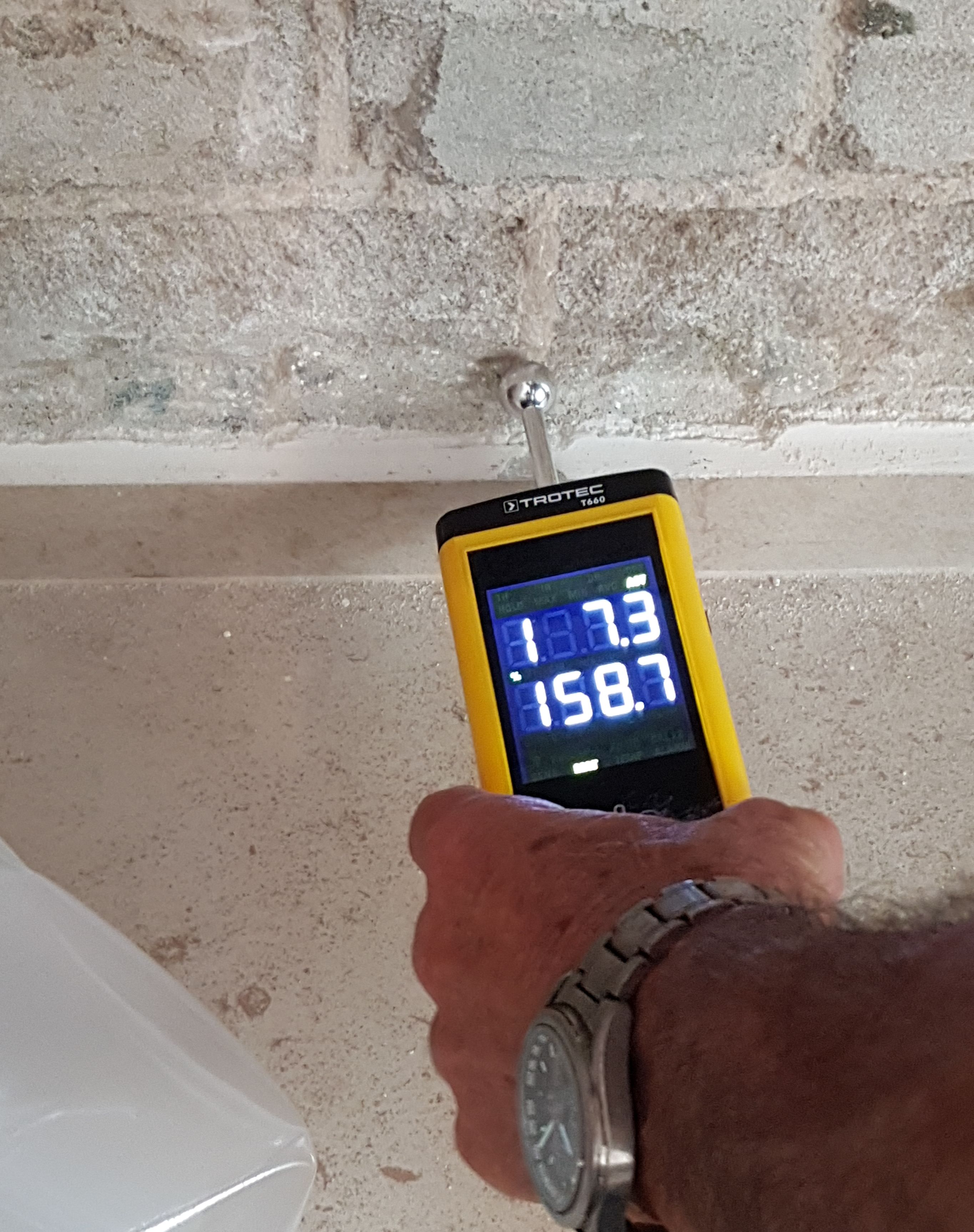Top 10 Benefits of Using a Moisture Meter for Correct Measurements in your house
Top 10 Benefits of Using a Moisture Meter for Correct Measurements in your house
Blog Article
The Ultimate Overview to Moisture Meters: A Comprehensive Review and Exactly How They Can Save You Money
In the realm of structure upkeep, building, and various industries, the relevance of precisely determining moisture degrees can not be overemphasized. Moisture meters act as crucial devices in discovering and keeping track of moisture content in materials, aiding in preventing costly problems and making sure the high quality of products. Comprehending the nuances of various kinds of moisture meters, their applications, and the possible cost-saving benefits they supply can be a game-changer for services and professionals alike. Uncovering exactly how these devices can not just streamline procedures but additionally contribute to economic savings is a trip worth starting.
Sorts Of Moisture Meters
Various kinds of moisture meters are offered for different applications in various sectors. One typical type is the pin-type wetness meter, which measures the electrical resistance in between 2 pins put into a product. This type is appropriate for timber, drywall, and various other structure materials. Pinless dampness meters, on the various other hand, use electro-magnetic sensing unit plates to scan a bigger location without causing damage to the product's surface area. These meters are optimal for promptly evaluating wetness degrees in large areas such as floors and wall surfaces.
Furthermore, there are also specialty wetness meters created for details products like dirt, grain, or hay. These meters give exact moisture readings tailored to the unique buildings of the product being tested. Infrared moisture meters measure the thermal residential or commercial properties of a material to identify its wetness material non-invasively, making them helpful for applications where pin or pinless meters may not be appropriate. Comprehending the different sorts of moisture meters available can help sectors pick one of the most ideal device for their certain wetness measurement requirements.

Advantages of Using Moisture Meters

Additionally, utilizing wetness meters can lead to enhanced energy efficiency. In farming setups, wetness meters play a vital function in enhancing crop yields by making it possible for farmers to check dirt wetness levels and make informed watering decisions.
Exactly How to Choose the Right Moisture Meter
Choosing the suitable moisture meter entails taking into consideration crucial elements such as material compatibility, dimension variety, and calibration accuracy. When picking a wetness meter, it's vital to guarantee that the meter is suitable for the details material you will certainly be screening. Different products have varying electric buildings that can impact moisture analyses, so selecting a meter made for your material is crucial for exact results. In addition, consider the dimension series of the dampness meter. Guarantee that the meter can detect wetness levels within the range needed for your applications. Calibration accuracy is one more crucial variable to keep in mind (Moisture Meter). Select a moisture meter with trusted calibration to guarantee regular and precise readings. Some meters might require regular calibration changes, so understanding the calibration procedure is important. By thoroughly reviewing these elements, you can select a dampness meter that meets your requirements and gives accurate Learn More moisture measurements for your tasks.
Correct Techniques for Moisture Meter Usage
To make certain accurate moisture readings and make best use of the effectiveness of a wetness meter, employing appropriate strategies is essential. When using a pin-type wetness meter, place the pins or probes right into the product being examined till they make full contact. Guarantee the pins are perpendicular to the surface to get one of the most exact analysis. For pinless wetness meters, hold the tool level versus the product and relocate it gradually to cover the whole location for an ordinary analysis. It's critical to adjust the dampness meter according to the product being examined to boost precision. Take numerous analyses throughout the surface area and ordinary them out for an extra trusted result. Additionally, ensure that the material being tested is adjusted to the environment to stop skewed analyses. Normal upkeep of the wetness meter, such as cleaning up the pins or sensor, is additionally essential to make certain accurate and regular analyses. By complying with these proper techniques, customers can depend on their wetness meter to offer trustworthy dampness levels, aiding in preventing pricey damage or making sure high quality in different applications.

Price Cost Savings Through Moisture Meter Applications
Exactly how can the critical utilization of moisture meters lead to considerable expense financial savings throughout various industries? In the agriculture market, wetness meters help in establishing the optimum time for harvesting crops, avoiding over-drying or excess wetness that can affect the last item's top quality.

In addition, in the food handling sector, dampness meters are essential for keeping track of product high quality and guaranteeing compliance with security policies. By precisely determining moisture content in foodstuff, manufacturers can prevent spoilage, maintain quality, and lower waste, causing substantial expense financial savings. Generally, the calculated application of wetness meters is an important investment that can lead to significant price decreases and improved efficiency throughout different markets.
Conclusion
In verdict, moisture meters are useful devices for measuring and discovering dampness levels in different products. By utilizing the ideal dampness meter and following appropriate strategies, users can successfully protect against costly damages created by excess dampness.
Moisture meters serve as crucial tools in discovering and checking moisture web content in materials, aiding in stopping pricey problems and ensuring the quality of products. Infrared wetness meters determine the thermal properties of a material to identify its wetness material non-invasively, making them beneficial for applications find out this here where pin or pinless meters might not be ideal.Dampness meters offer invaluable benefits in accurately checking and analyzing moisture degrees in varied products and settings. In farming setups, wetness meters play a critical duty in maximizing plant returns by allowing farmers to keep an eye on soil moisture levels and make informed watering choices.In final thought, wetness meters are important tools for spotting and measuring dampness degrees in different materials.
Report this page